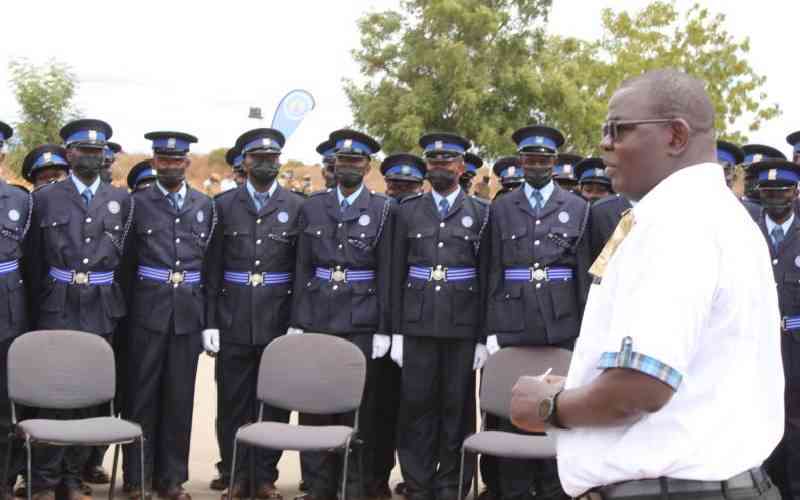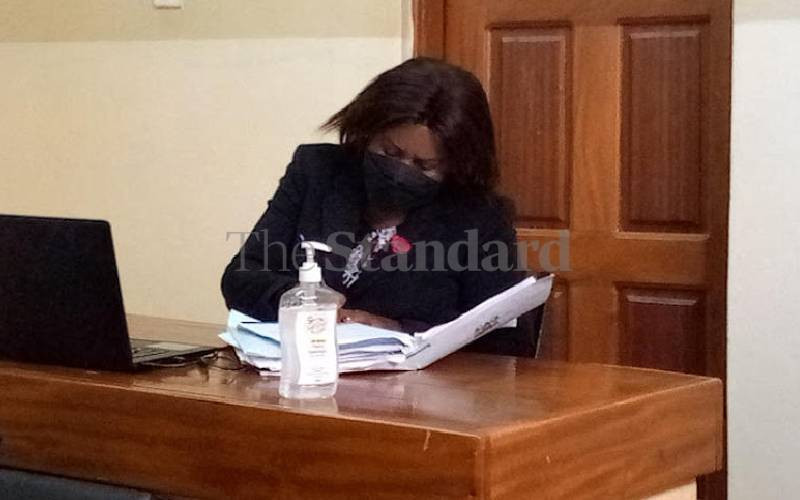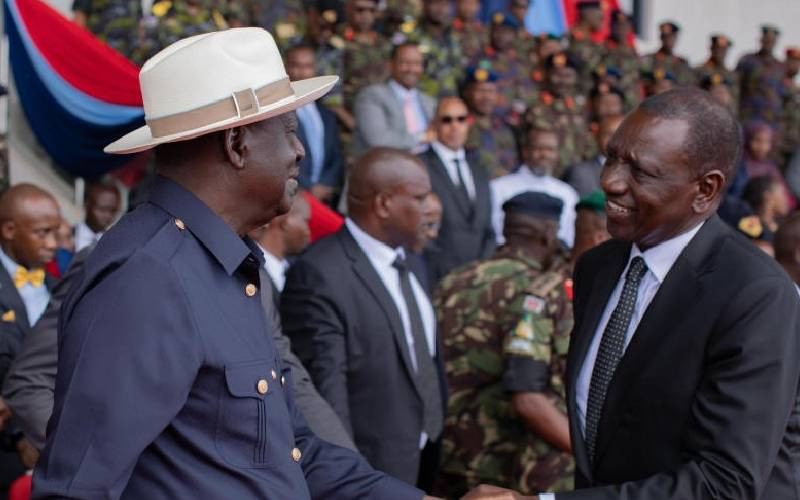Pending legislation on terror has sparked plenty of concern among a section of Kenyans and civil society. And rightly so, since their biggest fear is a return to the dark days when civil liberties were trampled upon in the name of an ogre called national security.
In particular, Muslims are incensed they have rejected the Bill and want it shelved.
Sober debate
Ours is to urge sober debate on this matter. Following the US Embassy bombing in 1998, Kenya conceived the process of trying to come up with legislation that specifically tackles terrorism. The matter gained more urgency after the Kikambala bombing in Mombasa in 2003 and, now, with the current Kenya Defence Forces operation against Al Shabaab in Somalia that has seen innocent Kenyans bear the brunt of revenge attacks.
Opposition to such a Bill has been consistent beginning with the shelving of the Suppression of Terrorism Bill in 2003, which many Muslims feared would target them.
But it is dangerous to make laws under pressure. Americans are stuck with the increasingly unpopular US Patriot Act signed into law by President George W Bush a month after the September 11, 2001 attacks on the World Trade Centre. Attempts to have it repealed on grounds it violates a number of freedoms Americans hold dear have been unsuccessful. It dramatically reduced restrictions on law enforcement agencies’ gathering of intelligence inside America. It gave a wide latitude to police and immigration authorities to detain and deport immigrants suspected of terrorism.
Questions
The current furore in Kenya has been sparked by the Prevention of Terrorism Bill 2012. What is it about the anti-terror legislation that now pits the Muslim establishment against the Government?
Why do they perceive it as anti-Muslim? If the Government can address these concerns, it will have gone a long way in defusing a matter which, at the moment is in danger of being exploited by radical extremists.
Following the massacre in Garissa of 17 Kenyans by terrorists, Muslims and Christians stood together, and declared that when it comes to freedom of worship, it matters not what faith one possesses. Muslims took it further and offered to help beef up security for churches, a rare gesture that offered a window into the possibilities of dialogue.
There is no doubt that current legislation limits the ability of the various security agencies to suppress terrorists, but the difficulty is in coming up with a law that is not in conflict with the Constitution.
How do you stop a man who cares not whether he lives or dies from detonating a bomb and claiming hundreds of lives?
Can it be argued that there are special circumstances with regard to tracking, investigating, and arresting suspected terrorists that requires legislation outside the Penal Code?
Equip police
It has become much harder for the State to trample on the rights of Kenyans thanks to the new Constitution. Can the Kenya Police do more to prevent terrorism without the help of draconian legislation? Perhaps yes.
Stay informed. Subscribe to our newsletter
The State has failed to provide the police with up-to-date investigative equipment that would make their work easier, even though this is a key goal in the Government’s economic and social development blueprint, Vision 2030.
There is no National Crime Database, and even if it existed, the few computers in police stations are not linked to the Internet. Most do not even have working generators in case of power outages.
The police are poorly housed and lowly paid. Some are now using this as an excuse to resort to crime. Which begs the question, is the lack of anti-terror legislation the main problem or is it the absence of a motivated, graft-free and well-equipped police force? Any law is only as good as those empowered to enforce it. Has the State done enough in this regard or is it after legislation for legislation’s sake?
Rather than bow to pressure and shelve the Bill, it would be wise for the Government to subject it to thorough public debate and scrutiny to ensure clauses that appear discriminative or that could be used for repression are removed.
 The Standard Group Plc is a
multi-media organization with investments in media platforms spanning newspaper
print operations, television, radio broadcasting, digital and online services. The
Standard Group is recognized as a leading multi-media house in Kenya with a key
influence in matters of national and international interest.
The Standard Group Plc is a
multi-media organization with investments in media platforms spanning newspaper
print operations, television, radio broadcasting, digital and online services. The
Standard Group is recognized as a leading multi-media house in Kenya with a key
influence in matters of national and international interest.
 The Standard Group Plc is a
multi-media organization with investments in media platforms spanning newspaper
print operations, television, radio broadcasting, digital and online services. The
Standard Group is recognized as a leading multi-media house in Kenya with a key
influence in matters of national and international interest.
The Standard Group Plc is a
multi-media organization with investments in media platforms spanning newspaper
print operations, television, radio broadcasting, digital and online services. The
Standard Group is recognized as a leading multi-media house in Kenya with a key
influence in matters of national and international interest.









